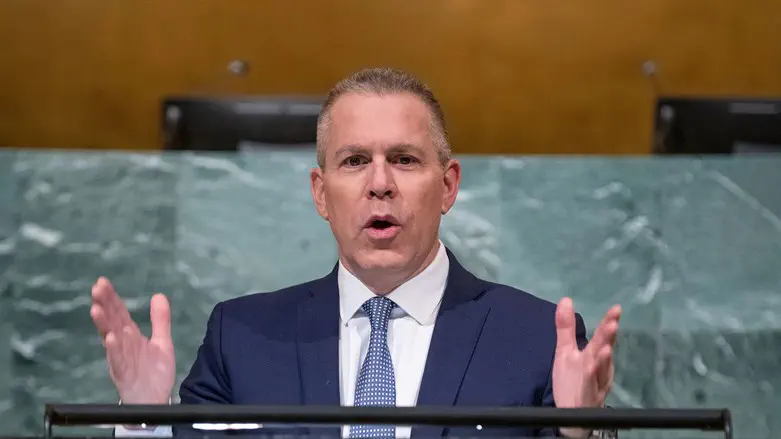
Israeli Ambassador to the United Nations (UN) Gilad Erdan spoke Thursday morning about the possibility that Israel and Saudi Arabia will normalize relations, and the demands being made of Israel regarding the Palestinian Authority.
In an interview with 103 FM Radio, Erdan noted the statement by Saudi Arabia's Crown Prince Mohammed bin Salman that the two countries are moving closer to normalization, he said, "It's clear," adding, "I think that if the US President includes this in what he tells the media, then it's likely that the Americans also believe that there's a decent chance of this amazing and historical achievement which we never dreamed of reaching in our days [happening]. And I hope that it will happen."
At the same time, Erdan stressed, "There are obviously still more obstacles. But the Prime Minister updated us after the meeting [with US President Joe Biden] and actually most of it went on what the obstacles still remaining are, so that we can reach this achievement of peace with Saudi Arabia, and also on how to stop Iran in a large number of contexts that are on the table right now."
"I think that the main thing is that we must not allow the Palestinians the right of veto, and that is the message we are always telling the Americans. This is what for many years prevented peace agreements with Arab countries, because then the demands become impossible.
"None of us wants Israel to agree to such demands, which will hurt the country's security or endanger its future, even for peace with a country as important as Saudi Arabia. But we are not yet at an advanced enough stage, because the list of demands from Israel with regards to the Palestinians has not yet been put together."
He continued, "The Saudis would like to hear the Palestinians' blessing for normalization with Israel, and not like before, when the Palestinians attacked and called the agreement between the UAE and Israel 'a stab in the back.'"
"At the end of the day, Israel has its own view, and its own order of priorities, and the government - and first of all the Prime Minister - will need to decide what is more important than what. I assume that a package of demands, and benefits, will be presented, and Israel will need to make a decision. It could be that some of the political sources in the government may not like this order of priorities," he concluded.